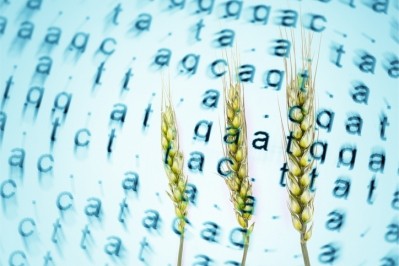EU-funded project to advance detection methods for NGT products

The idea is that a large group of scientists will validate and deliver nine reliable DNA-based targeted and untargeted detection methods for plant products obtained through NGTs.
The DARWIN partners will evaluate the methods in realistic scenarios together with industry and law enforcement authorities, highlighting fit-for-purpose solutions for a variety of NGT organisms in the agri-food sector. The project also aims to inform the EU Commission proposal for a new regulation on plants produced by certain NGTs and the EU’s new biotechnology agenda.
New genomic techniques (NGTs), particularly the CRISPR-Cas system, have emerged with potential applications in plant breeding, prompting a need for regulatory adaptation.
In February, the EU Parliament approved the EU Commission's proposals for new rules on plants obtained through NGTs. MEPs agree with the proposal to have two different categories and two sets of rules for NGT plants. NGT plants considered equivalent to conventional ones (NGT 1) would be exempted from the requirements of the GMO legislation, whereas other NGT plants (NGT 2) would still have to follow stricter requirements. Moreover, the lawmakers want to keep mandatory labelling of products derived from both types of NGTs.
Alexander Hissting, managing director of VLOG, the German association for food without genetic engineering, commenting on the project, said:
“Repeatedly, stakeholders argue that distinguishing between genetic changes induced by mutations and interventions using new genetic engineering methods is not feasible. This argument is frequently used to advocate for deregulating products of new genetic engineering, treating them legally as products of conventional plant breeding.
"DARWIN offers hope that, within a few years, detection methods will be available to accurately identify products of new genetic engineering, It is good that the EU is finally getting this important research off the ground. There is no longer any excuse. New genetic engineering products must also continue to be clearly regulated and labelled as GMOs."
Norwegian research institute, NORCE, is acting as the lead organization within the consortium, and Odd-Gunnar Wikmark, project coordinator, believes confirmed detection techniques will improve traceability, enabling consumers and producers to make educated decisions. These methods will ensure adherence to regulations, offer transparency, and foster public confidence, he remarked.
Consortium members
With a 15-strong consortium from 11 countries, the DARWIN project runs from January 2024 to June 2027.
Other groups involved in the project include WINGS ICT Solutions, Istituto Zooprofilattico Sperimentale delle Regioni Lazio e Toscana, Sciensano, ICONS Innovation Strategies, The Hebrew University of Jerusalem, VLOG, IFOAM Organics Europe, Institut De Recerca I Tecnologia Agroalimentaries, Justus Liebig University Giessen, CIRAD, Universidad Nacional de Rosario, ANSES, Nemzeti Élelmiszerlánc-biztonsági Hivatal, and Graminor As.
ANSES calls for appropriate regulations on NGTs
Meanwhile, the French government agency for food, environmental and occupational health, and safety, ANSES, outlined, earlier this month, how it had conducted an expert appraisal to address health, environmental, and socio-economic challenges associated with NGTs, proposing a case-by-case risk assessment and comprehensive monitoring scheme. It said its findings should inform current discussions on changes to the European GMO framework.
The agency also stressed the necessity of democratic debate beyond risk considerations, arguing that the diversity of motivations driving NGT development underscores the need for an open and informed discussion with support for public research crucial in promoting sustainable agricultural practices.
NGTs, unlike traditional transgenesis, offer precision in modifying genetic sequences without introducing external genes, posing distinct regulatory challenges, noted the organization.
ANSES is advocating for tailored risk assessment methods and emphasizes post-market surveillance for health and environmental effects. Additionally, the agency highlighted the importance of common guidelines to ensure consistency in risk assessment across EU countries.















